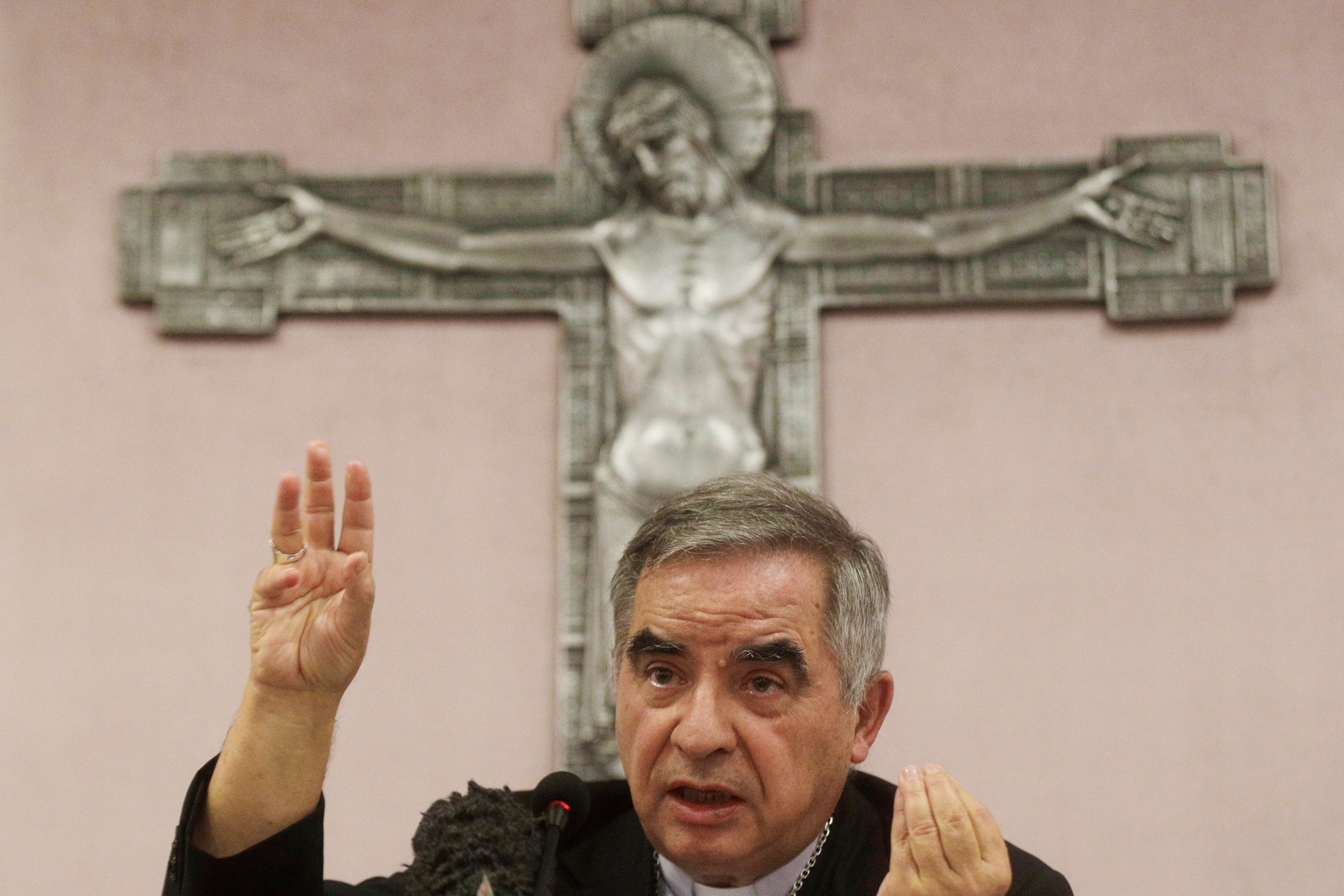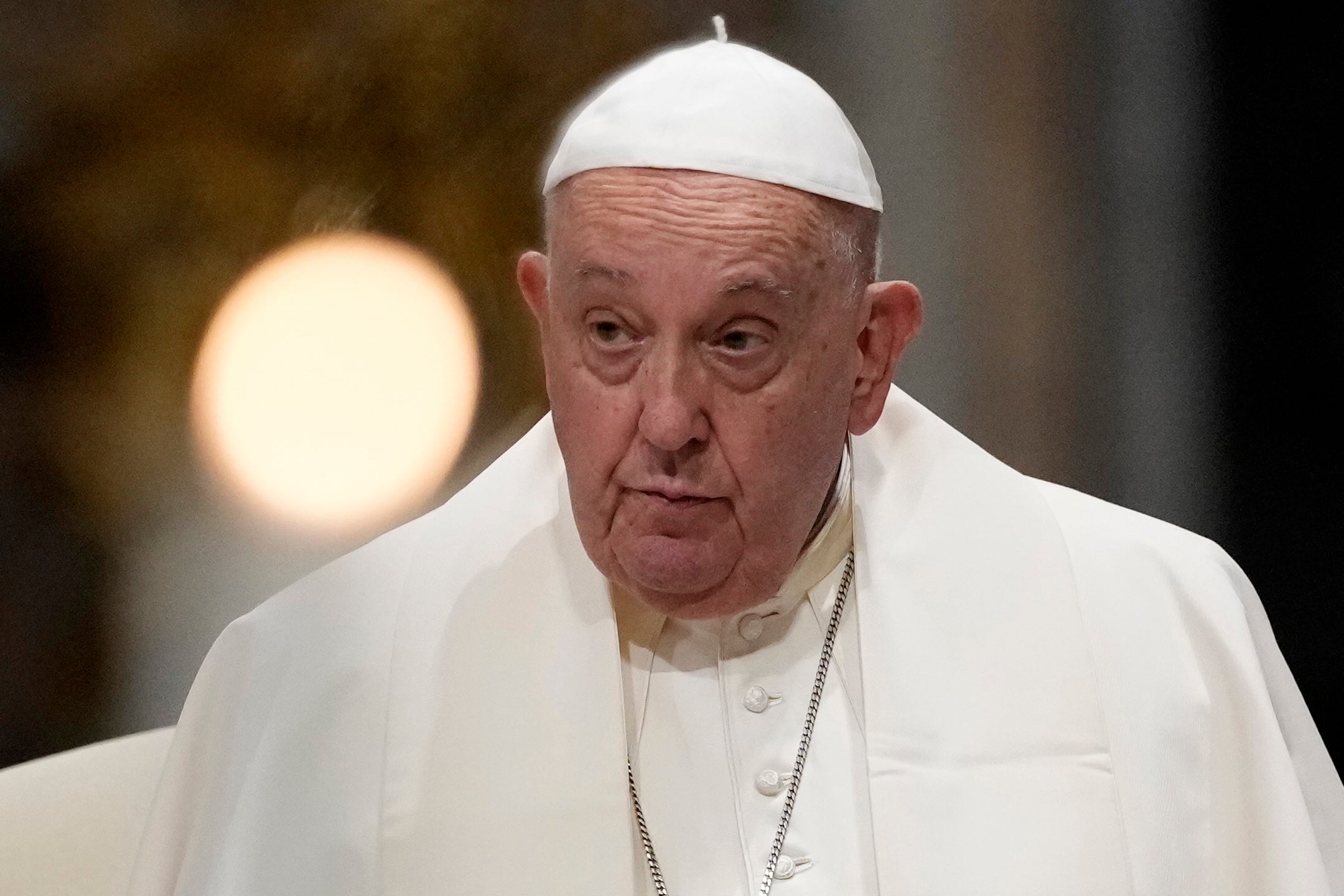Vatican tribunal explains conviction of cardinal in ‘trial of the century’
The trial focused on the Vatican secretariat of state’s participation in a fund to develop a former Harrod’s warehouse into luxury apartments

Your support helps us to tell the story
From reproductive rights to climate change to Big Tech, The Independent is on the ground when the story is developing. Whether it's investigating the financials of Elon Musk's pro-Trump PAC or producing our latest documentary, 'The A Word', which shines a light on the American women fighting for reproductive rights, we know how important it is to parse out the facts from the messaging.
At such a critical moment in US history, we need reporters on the ground. Your donation allows us to keep sending journalists to speak to both sides of the story.
The Independent is trusted by Americans across the entire political spectrum. And unlike many other quality news outlets, we choose not to lock Americans out of our reporting and analysis with paywalls. We believe quality journalism should be available to everyone, paid for by those who can afford it.
Your support makes all the difference.The Vatican tribunal said it convicted a cardinal of aggravated fraud and other charges because of his “objectively inexplicable behavior” in paying a self-styled intelligence analyst over a half-million euros in Vatican money that she then spent on luxury items and vacations.
The city-state’s tribunal issued 816 pages of written motivations from its Dec. 16 verdicts in the Vatican’s “trial of the century.” The two-year trial of 10 people was borne out of the Holy See’s 350 million euro ($380 million) investment in a London property but grew to include a host of other financial dealings.
Cardinal Angelo Becciu, a once-powerful cardinal who was the No. 3, or “substitute,” in the Vatican’s secretariat of state, was the most prominent of the nine people convicted. He faces five and a half years in prison after being convicted of embezzlement, fraud and other charges.
He and the eight other defendants have announced appeals, as has the Vatican prosecutor. With the tribunal’s written explanations now filed — nearly a year after the convictions were handed down — both sides can elaborate the basis of their appeals.
The trial focused on the Vatican secretariat of state’s participation in a fund to develop a former Harrod’s warehouse into luxury apartments. Prosecutors alleged Vatican monsignors and brokers fleeced the Holy See of tens of millions of euros in fees and commissions and then extorted the Holy See for 15 million euros to cede control of the building.
Becciu was convicted of embezzlement stemming from the original Vatican investment of 200 million euros into the fund that invested in the London property. The tribunal determined that canon law prohibited using church assets in such a speculative investment.
Becciu was also convicted of aggravated fraud for his role in paying a self-proclaimed intelligence expert from his native Sardinia, Cecilia Marogna, 575,000 euros in Holy See money. He had said the payments were authorized by Pope Francis as ransom to free a Colombian nun held hostage by al-Qaida-linked militants in Mali.

The investigation showed, however, that Becciu essentially double-billed the Vatican, with the same amount of money being sent to a British security firm that actually has expertise in liberating hostages. The nun was subsequently freed, but there is no indication Marogna had anything to do with it, the tribunal noted.
The tribunal, headed by Judge Giuseppe Pignatone, said Becciu never provided a reasonable explanation for why he paid Marogna the same amount of money, or why he never asked her for any updates on her alleged efforts to liberate the nun.
Even when told by Vatican gendarmes that Marogna had instead spent the Vatican’s money on luxury vacations and purchases at Prada, Becciu didn’t file a complaint with prosecutors or keep his distance from Marogna. Instead, they continued to communicate via a family friend.
“An objectively inexplicable behavior, all the more for someone in a position of the defendant, a cardinal prefect of the Congregation for the Causes of Saints and for seven years the substitute in the secretariat of state, who for a long period enjoyed the full trust of the pope,” the tribunal wrote. “A behavior, moreover, that the defendant has never explained in any way.”
Marogna, for her part, was tried in absentia and provided contradictory and inconclusive explanations in her written defense, the tribunal said. She too was convicted and sentenced to three years and nine months in prison.
The bulk of the written motivations were devoted to deciphering the complicated transactions at the heart of the London deal. The text also repeated the tribunal’s previous rejection of defense arguments that the trial itself was fundamentally unfair.